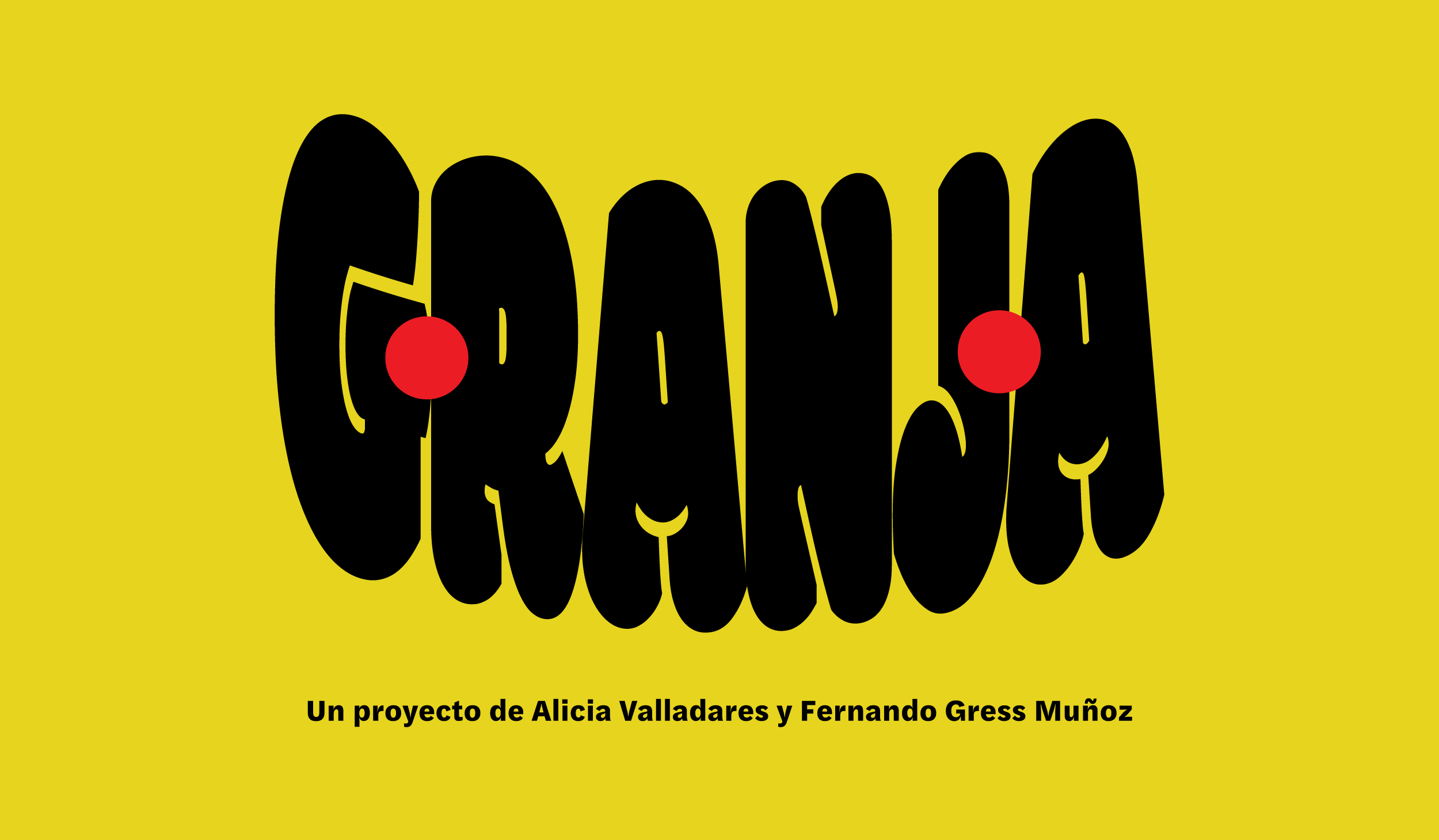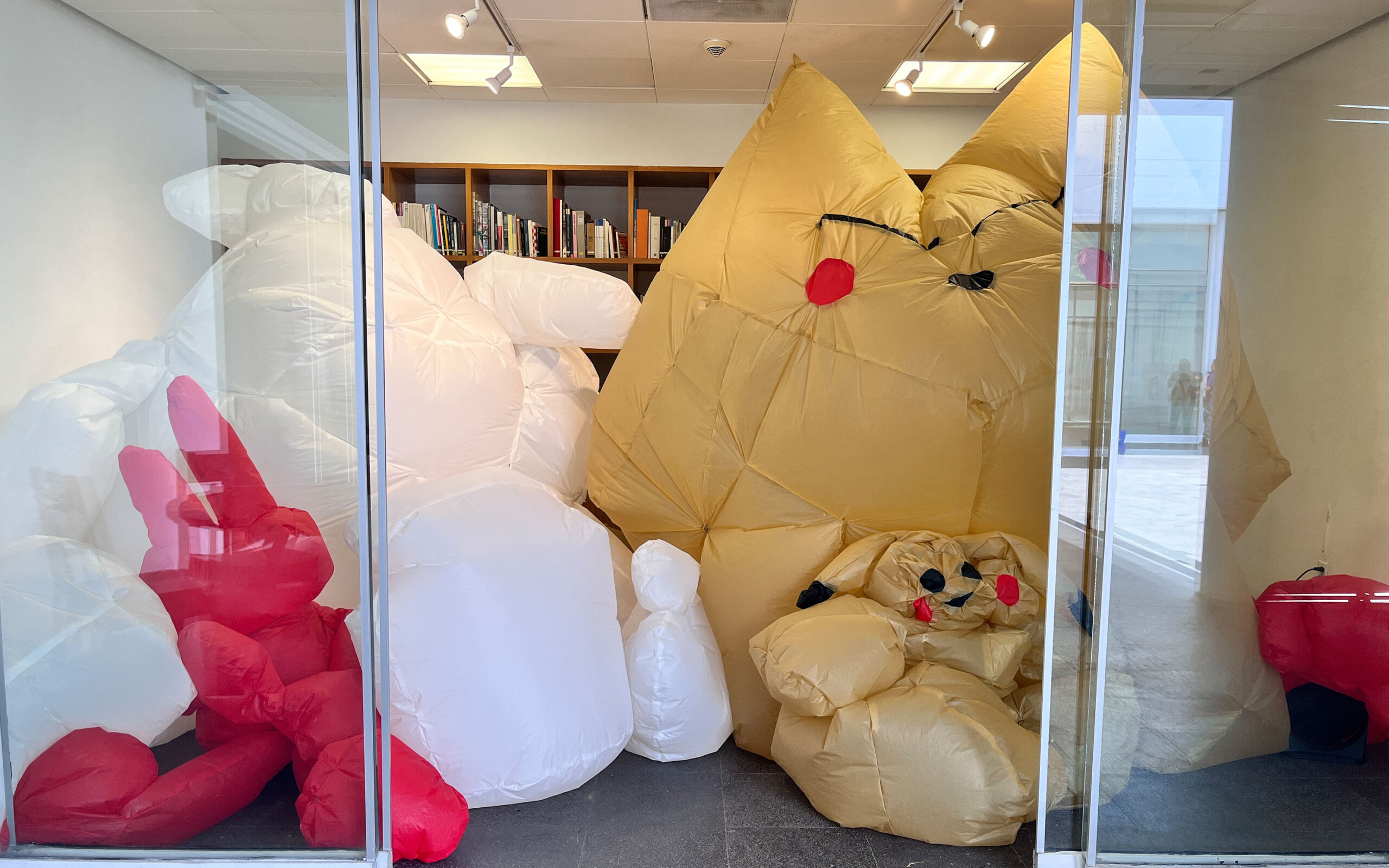
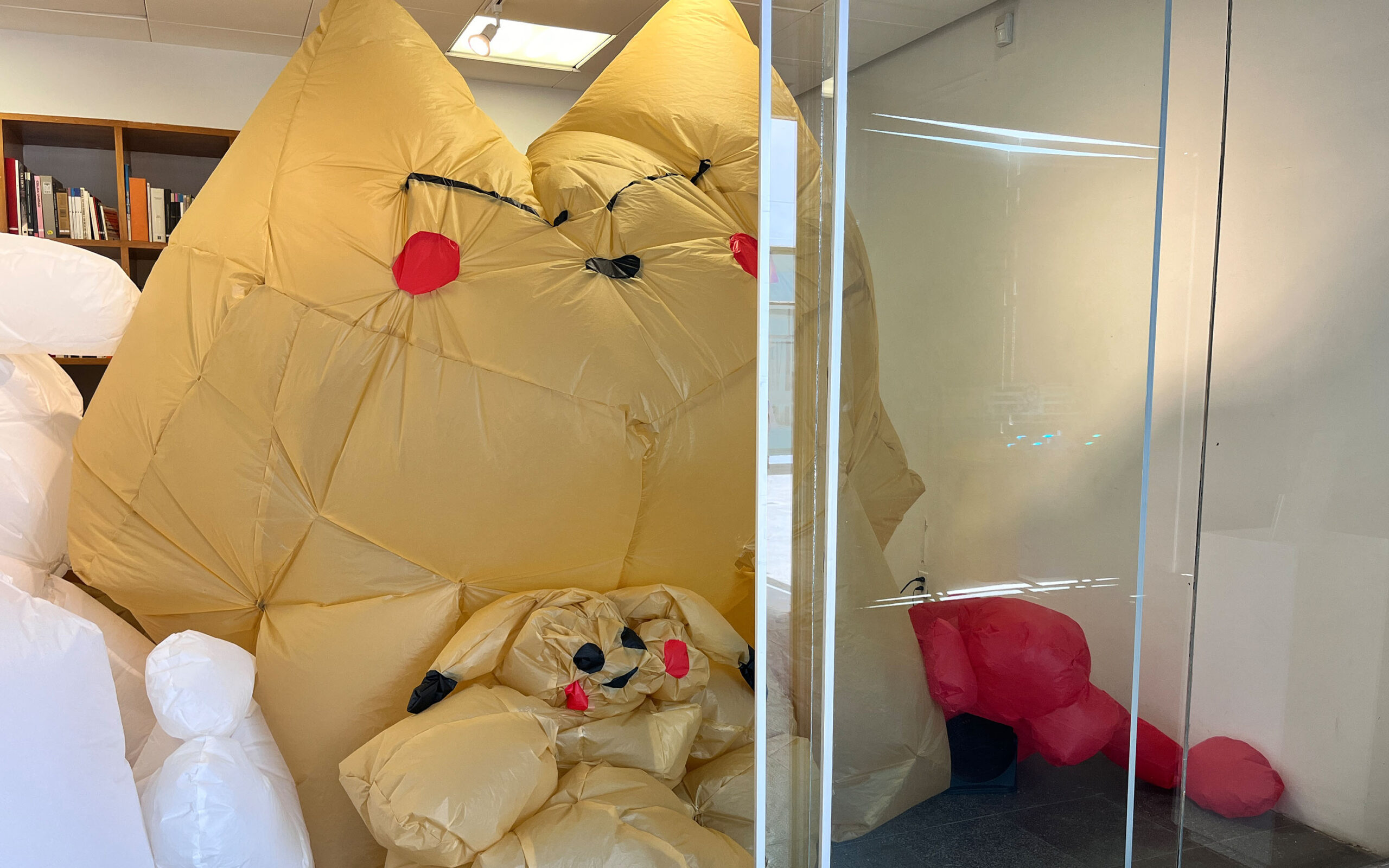
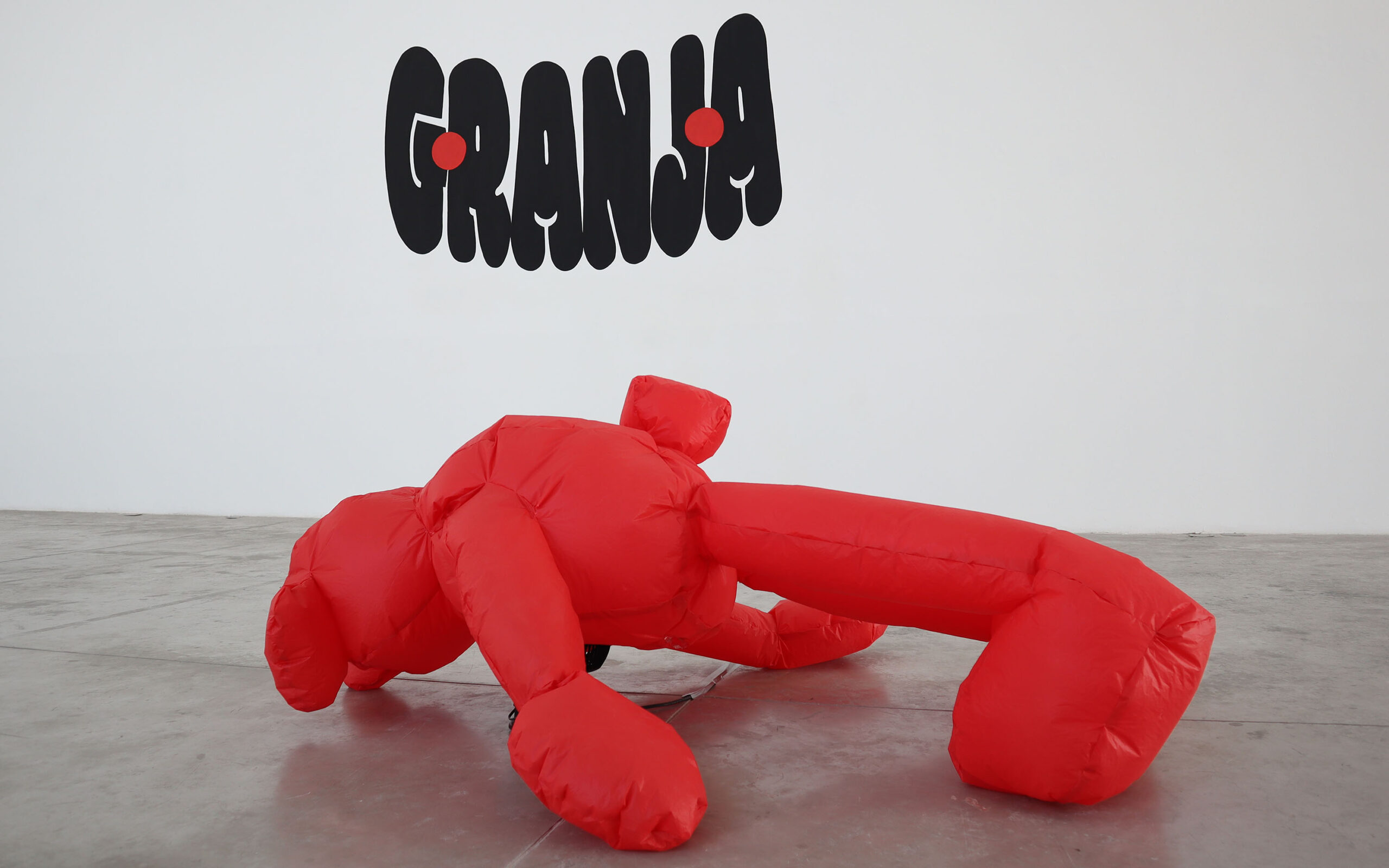
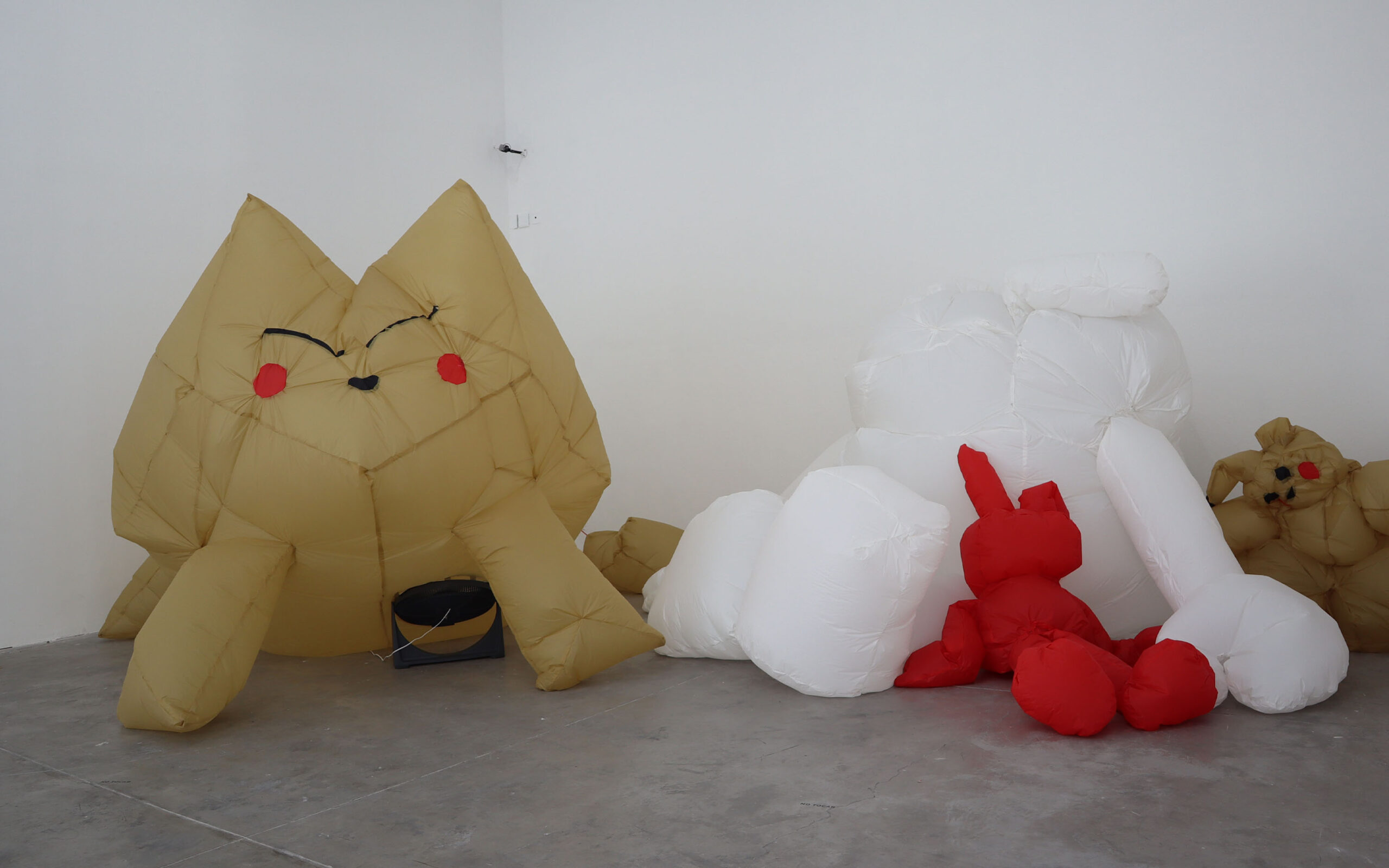
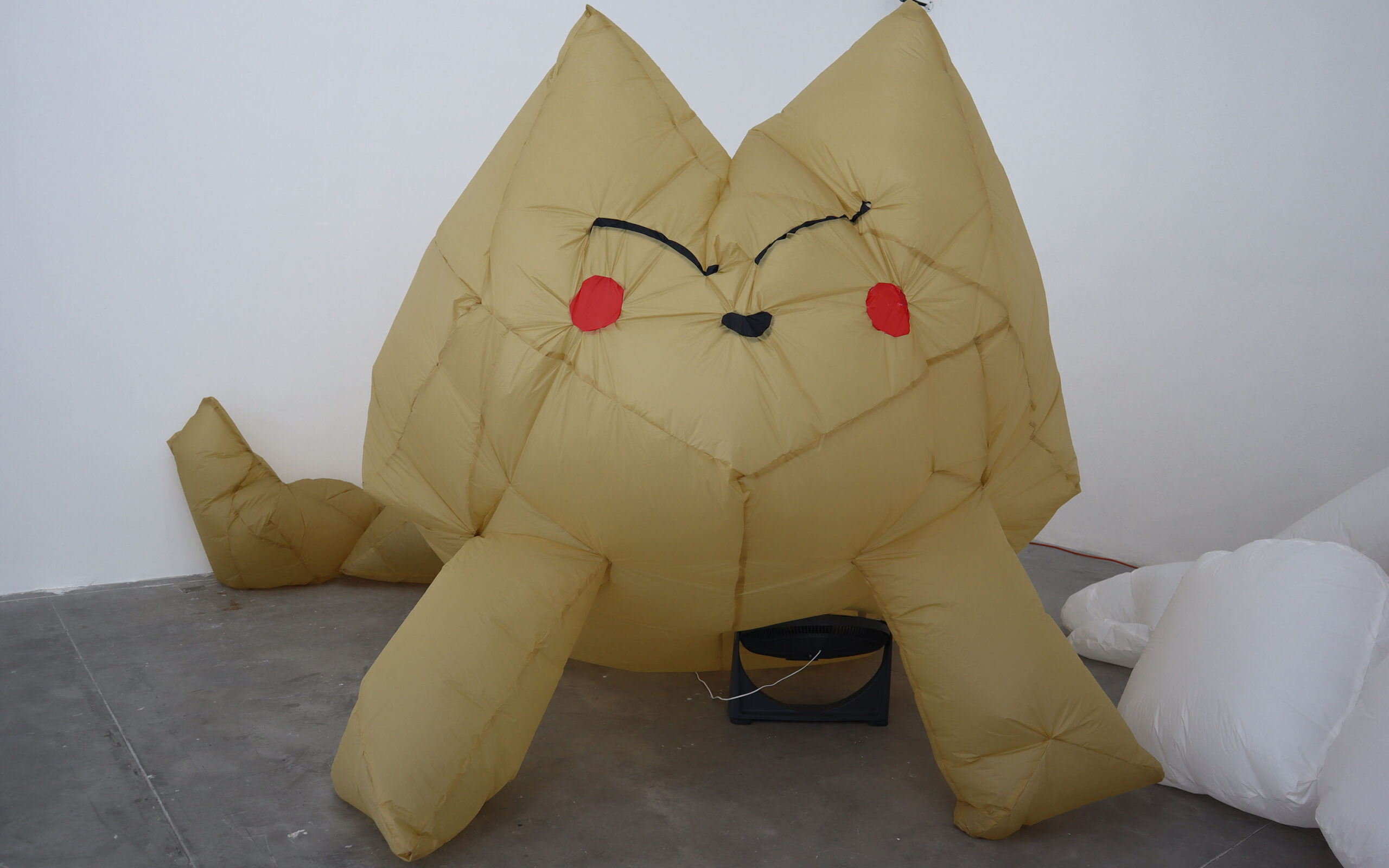
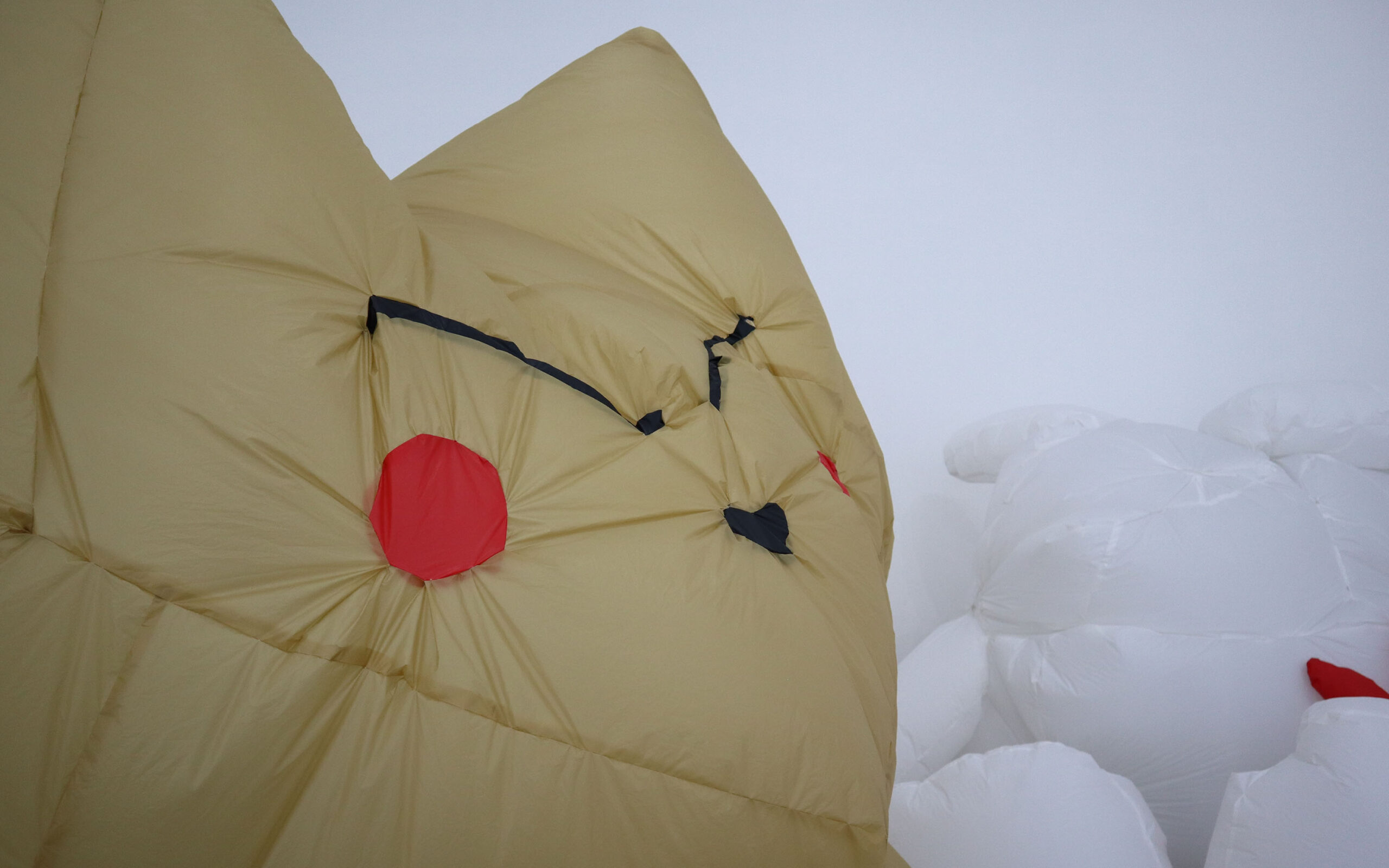
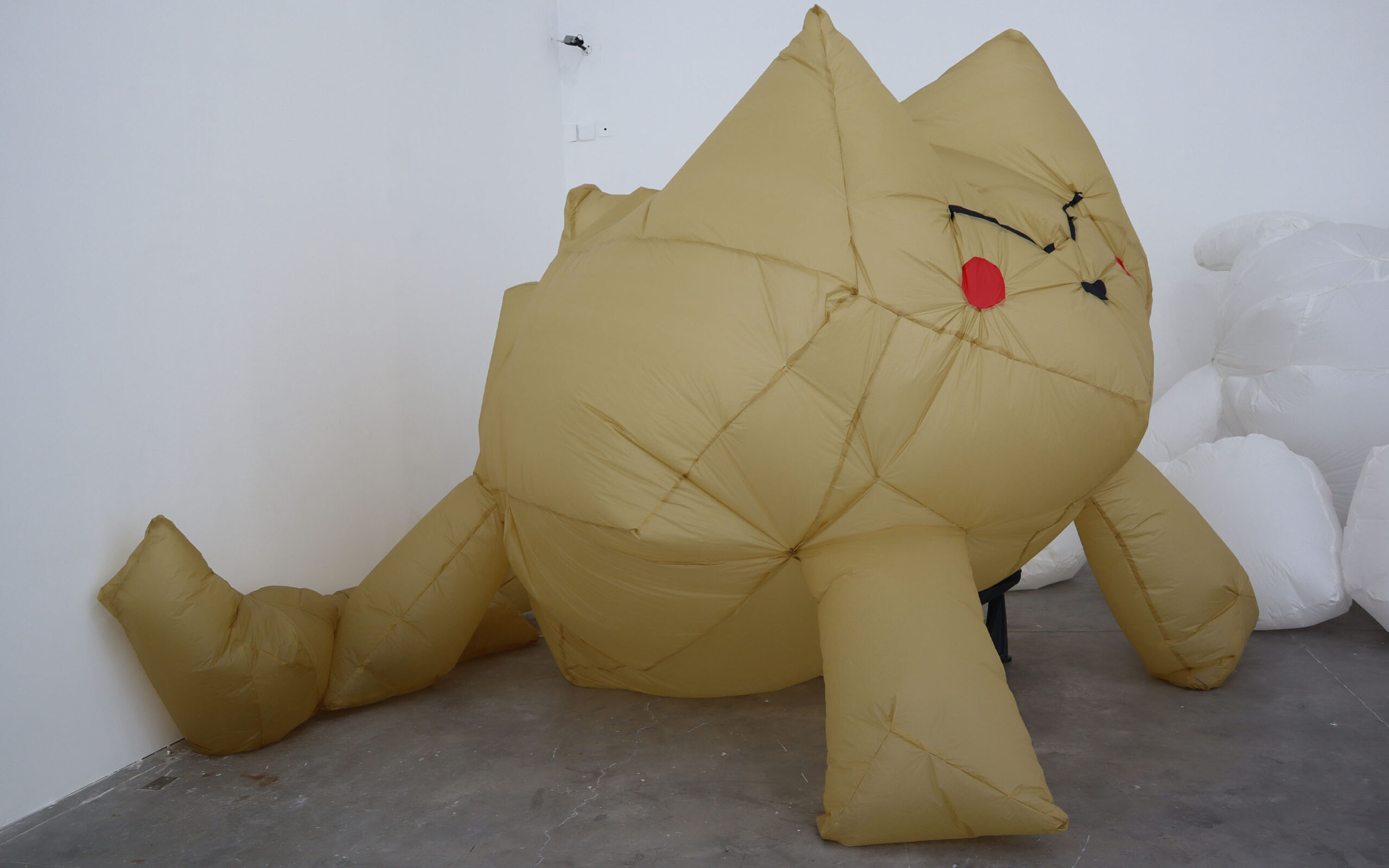
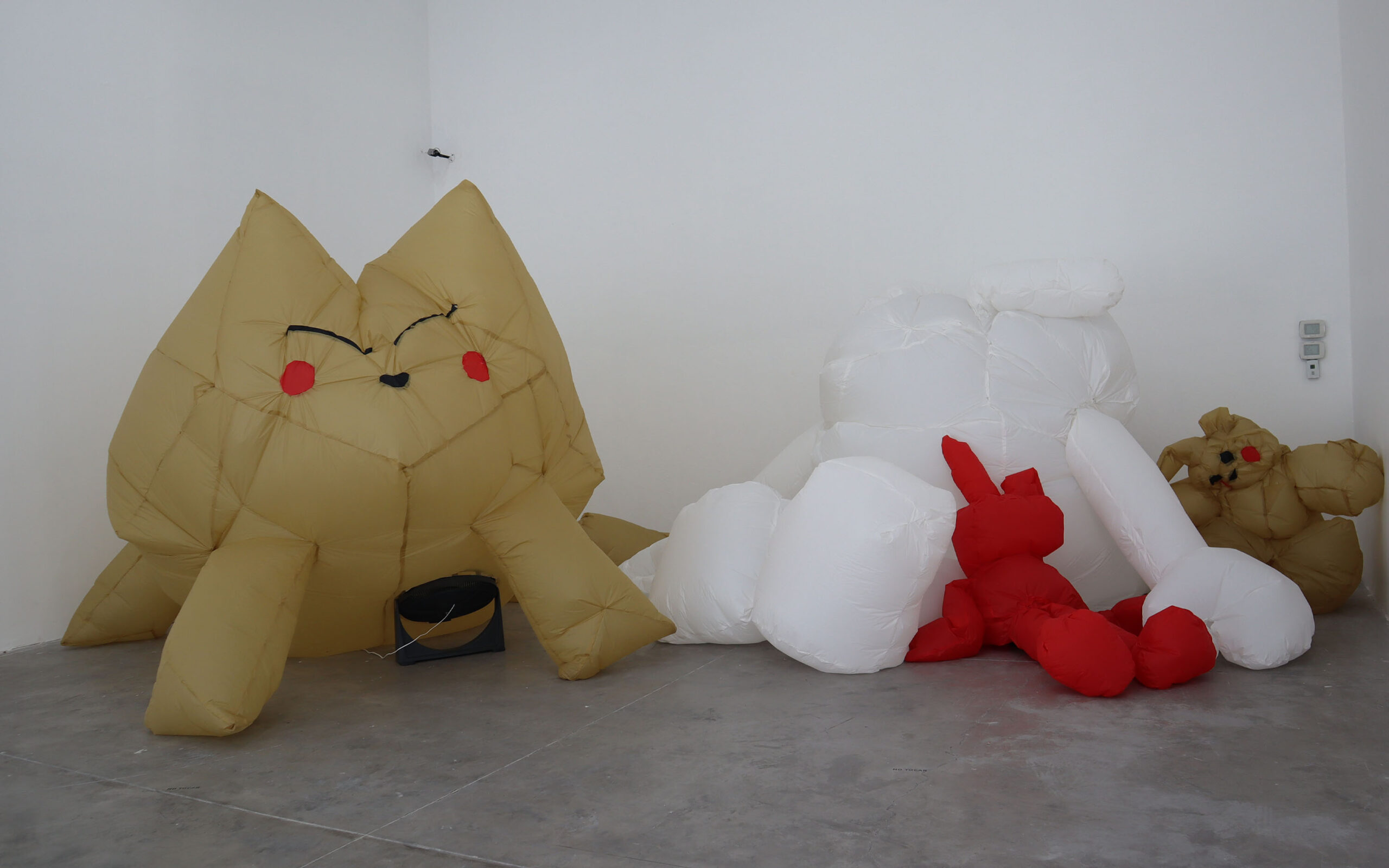
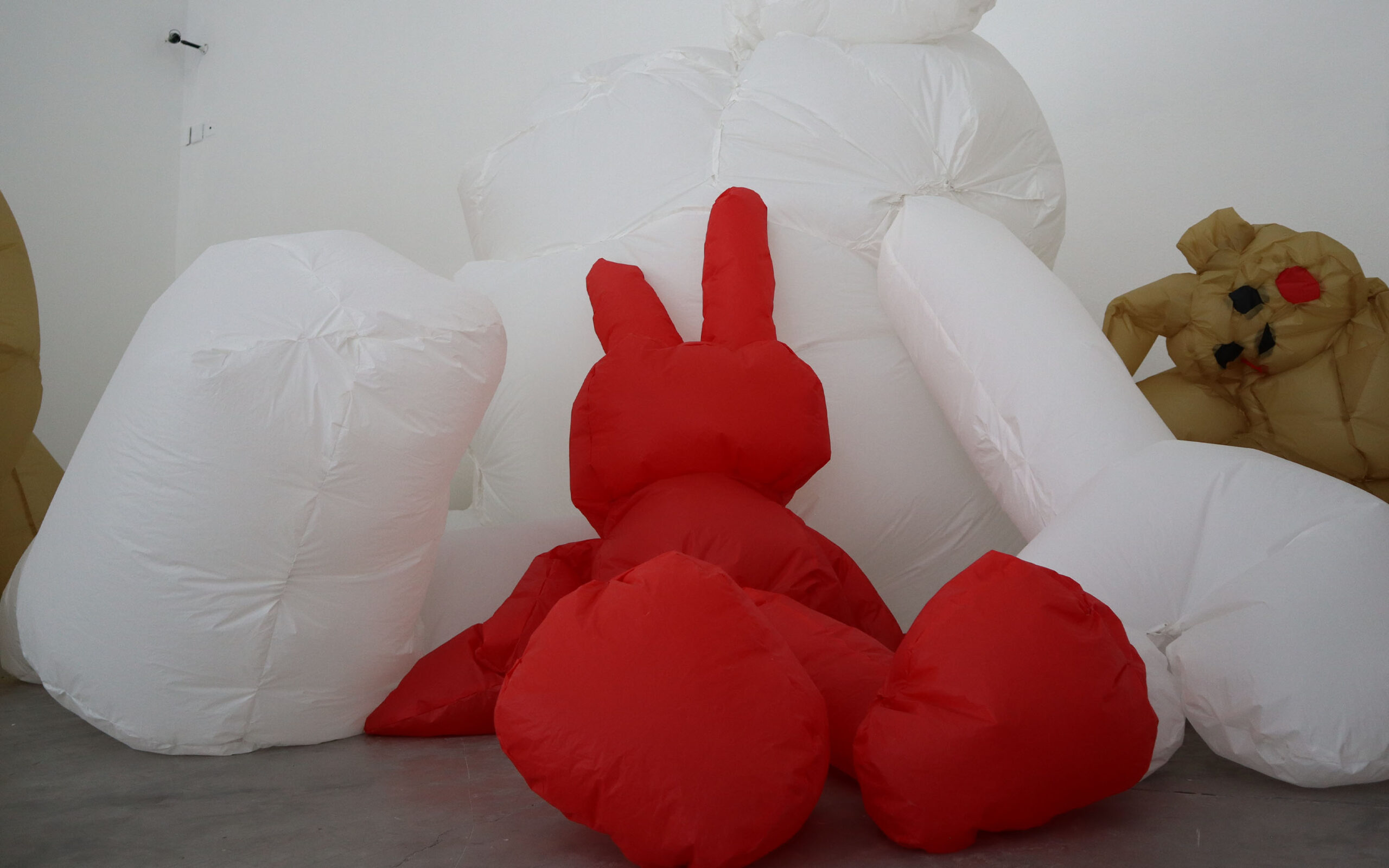
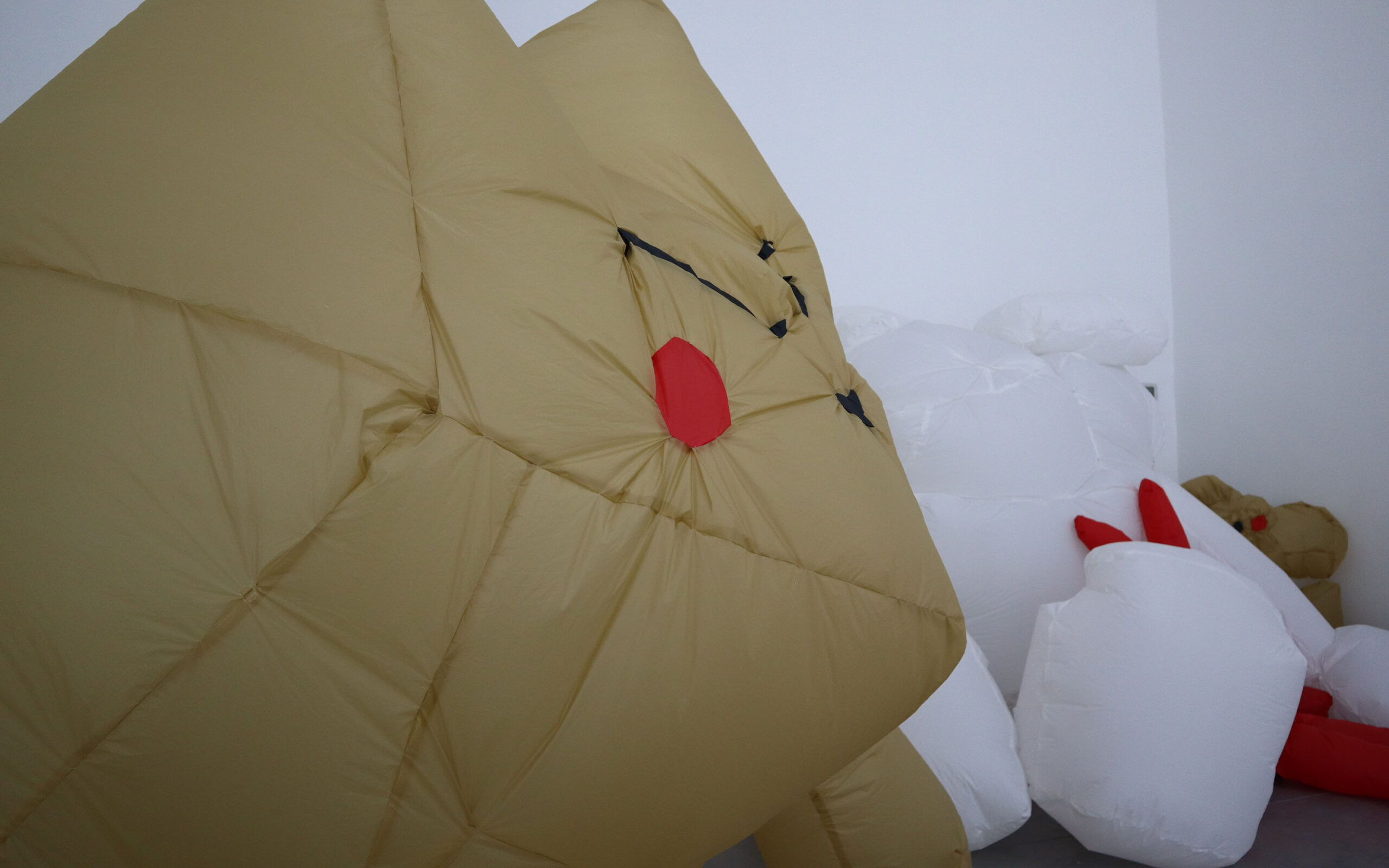
FARM | Alicia Valladares and Fernando Gress Muñoz
May 11 to July 7, 2024
Sala Juan Soriano, Sala de lectura, Lobby MAZ
Pokémon arrived in Mexico without a license to distribute video games, collectible cards, or action figures. In the absence of support from the international market, Mexican artisans and companies took charge of meeting the demand with bootlegs: unauthorized collectible items.
Alicia Valladares and Fernando Gress Muñoz use bootlegging to analyze the dynamics of cultural product consumption among the generations born around 1990 in Latin America. Through characters like Miffy and Pikachu, they explore the internalization of cuteness (kawaii) as a process that gave rise to a new form of spirituality, replacing inherited fictions such as religion by providing a sense of belonging and comfort in the face of an increasingly distressing reality.
At the center of spaces of worship and congregation, the new icons and idols took on the form of tropicalized figures. Made from tablecloth plastic and using air as a material, the works exhibit imperfections in their cuts and joints while showcasing the skill, ingenuity, and humorous potential of adding or removing elements that a licensed collectible would not have.
Inscribing themselves in the monumental sculpture genealogy of Art History, the artists appropriate strategies from Jeff Koons’ Balloon Dog series and anarchist architecture for shelters, highlighting formal attributes through limited resources.
Unlike advertising and festive inflatables, these animals must remain in the exhibition space to preserve their integrity. Thus, FARM points to the harshness of the outdoors, but also to the conditions of captivity: intensive production and management systems are institutionalized cruelty.
Maya Renée Escárcega
